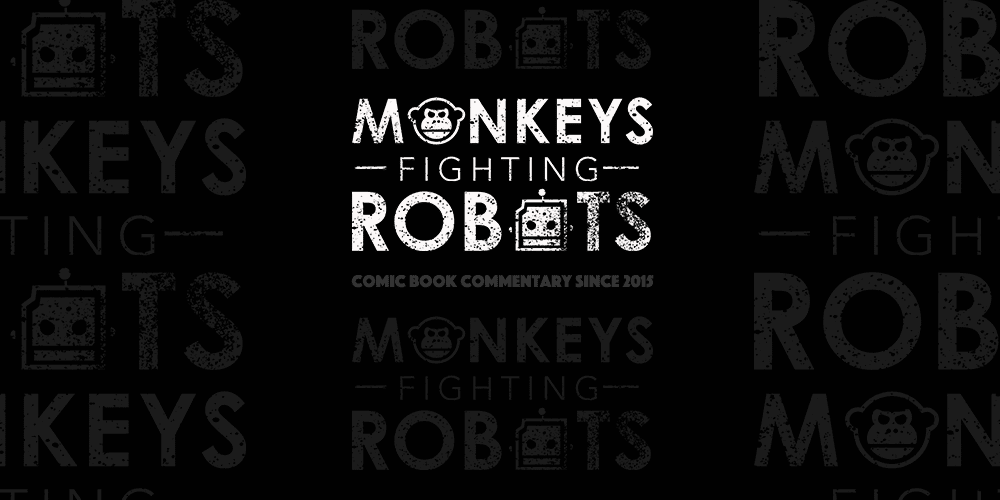If you are even somewhat involved in the wider comics zeitgeist, you’ll probably have heard of Catalyst Prime: Lion Forge’s first foray into super-heroic shared universe narratives. Like many of you, I approached this news with a bit of trepidation. Lion Forge have been a reliable publisher of quality indie content for quite sometime. If they were entering the fray, you could be sure that they were doing something interesting within the genre, but what could they do to distinguish themselves from their contemporaries? Along comes the latest arc of Kino from the team of Alex Paknadel (writer), Diego Galindo (artist), Adam Guzowaki (colorist), and Jim Campbell (letterer). What began as a Kirby-esque take on the allegory of the cave has become a treatise on the rise of the right and coping with same. The result is a comic in the vein of V for Vendetta that wears its sensibilities on its sleeve and simply demands your attention.
Once Alistair Meath was a national hero, an RAF pilot chosen to help avert Armageddon by destroying an asteroid before it collided with Earth. As should be expected, his intervention lead Meath to developing god-like powers. This ordinarily where we would recount his advent as a superhero and on some level we could. Meath did, indeed, become the greatest hero the world has ever heard over. The only problem was that was all a VR simulation designed to condition himself into the stereotypical man of steel we all recognise. To say that Meath didn’t take this revelation too kindly would be an understatement. Having destroyed the lab he was held captive in, Meath returns to a United Kingdom he no longer recognises. The idealistic world he’s lived in for the past few months replaced with a country that is slowly being corrupted by the seductive pull of far-right nationalism. A world where truth has become relative. A world that no longer has a place for Meath.
There’s a lot going on in Kino. This is not to suggest that it’s overloaded, but rather that there is a thematic depth on display that’s refreshing within the superhero genre. It’s a book that offers a good deal for readers to grasp and engage with. On one reading, you’ve the juxtaposition, which comics has always excelled in, between the idealism of the golden age with bleak reality of modern life. Meath emerges from his VR life utterly confused and disillusioned with the general state of affairs he finds himself in. The creative team captures this sinister sense that nothing in Meath’s life is as it should be. Existential ennui pervades the book in a most overpowering way. Galindo’s line-work and Guzowaki’s colour palette create alarm bells that signal that something undefinable is wrong. It’s rare that comics unsettle you in this way, but Kino succeeds in doing so.
While some books have sought to capture the feeling and impact of the Trump era, many with great success, Kino is one of the few to deal with the linked, but still distinguishable rise of nationalism and the far-right within the UK arising from Brexit. Our antagonist is one Edmund Spode, a Farage-esque operator motivated by opportunity rather than true political conviction, a character who not only wins the name for most British name in the history of comics, but also is in contention for admission into the “Big Book of British Smiles”. All art is about how we feel coming away from it and Kino leaves us shaken by the consequences it suggests. The point which launched the Catalyst Prime universe was a cataclysmic event involving an asteroid, yet in this book Spode turns that into a matter for debate. It’s “fake news” perpetuated by “globalists”, rhetoric that is becoming all to familiar in our discourse. Kino posits that if Brexiteers and the right can convince us that black is white in political terms, then it isn’t too far a leap to say that other objective truth will be the next to go. Suddenly, credence is to be given to those who claim the earth is flat, that climate change is a myth, or that we never landed on the moon. Everyone is entitled to their own opinion, but not their own facts, and if immovable truths become disputable then which one of history’s many horrific lessons in human cruelty is beyond challenge? When do truths become all too inconvenient to be allowed stand, and how do we as society react when it seems the whole world is conspiring to convince us that there are five lights when we only see four? The creative team have embarked on a journey that captures the sense of loneliness and isolation created by each headline that attacks what we know to be right. Meath is struggling to cope in this environment, one that will seek to silence the truth by any means necessary, and honestly, who could blame him? The real success of Kino is just how it replicates the toxicity outside our window, where you feel like you are the only sane one and even then you can be wholly sure.
One point that is worth highlighting on its own is Kino’s portrayal of homelessness. Our main character is presented in many ways as the quintessential homeless person: a vagabond. Meath’s misfortune has turned him into what our collective unconscious thinks of when we think of the homeless. Initially, this seems disappointing a portrayal given the care that Kino has taken in its overall approach to quite sensitive issues. There is an obvious benefit to using that kind of short-hand in that it instantly clues in the readers and feeds into the implied backstory. The problem is that relying solely on short-hand doesn’t recognise the plurality of homeless experiences. There is a moment, however, that turns this around where a character is introduced whose socio-economic status goes uncommented upon for quite some time. It is only towards the end of one of the issues that it is revealed that this woman is, like Meath, homeless too. The creative team play with our expectations and ingrained societal prejudices only to pull the wool from our eyes by revealing this unassuming person to be homeless too. The sad truth is that homelessness is not a homogeneous concept. It cannot be made to fit into neat categories for the sake of simplification. This is not done for the sake of representation, as if that would be a problem, but rather plays into the wider narrative of what the new UK has become under the guidance of Spode. It arises in circumstances where supporters of the far-right berate Meath for being homeless and attempt to lord their own affluence over him. They see homelessness as a symptom of a moral failing in an individual when that simply isn’t the case and the book deals with that wonderfully. Nuance is a nuisance sometimes.
Kino does all this whilst also being a compelling story that mixes superheroics, espionage, and political thrillers. This is a book that does not, so far at least, present us with a neat solution for the predicament we have found ourselves in. Life rarely does. What it does do is extend a hand and say “you are not alone in feeling this way”. It emphatically says that all of this is not normal and that we cannot allow it to become so. If you’re lamenting the loss of Mister Miracle, this is the very British spiritual successor you didn’t know you needed. It’s exactly the kind of comic you’d expect this team to have put together.
Kino is available in all good comic shops and is published by Lion Forge Comics.
A review copy was kindly provided by the creative team.



